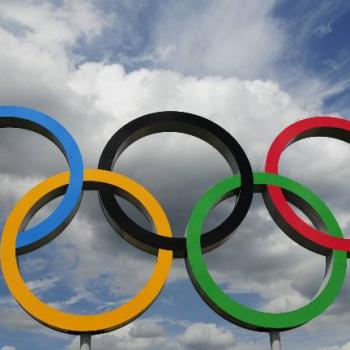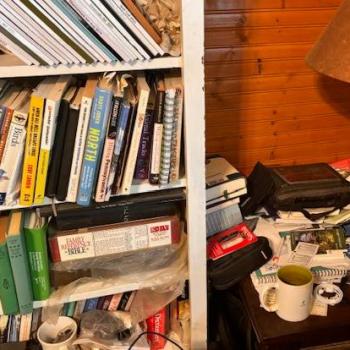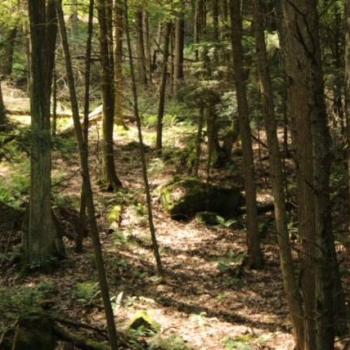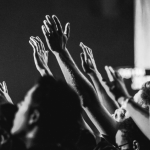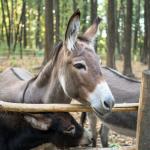I was listening to Pete Enns and Jared Byas’ Podcast recently and they interviewed David Dark on impact of doubt on faith development. There were so many great points, that I wanted to comment on this podcast from the contemplative lens that I see the world through.
Doubting Thomas
Let us consider Thomas from the Gospels. If you remember, after Jesus’ death, the followers that were left experience several mystical presentations of Jesus. When they informed Thomas of their experiences, Thomas is presented as being skeptical, offering that he needed to have the experience himself. From John 20:26-29, we get this account of what happened next:
A week later his disciples were in the house again, and Thomas was with them. Though the doors were locked, Jesus came and stood among them and said, “Peace be with you!” Then he said to Thomas, “Put your finger here; see my hands. Reach out your hand and put it into my side. Stop doubting and believe.”
Thomas said to him, “My Lord and my God!”
Then Jesus told him, “Because you have seen me, you have believed; blessed are those who have not seen and yet have believed.”
A Spiritual Practice
Let this be our entry into how doubt can become a powerful spiritual practice. Doubt as a practice is related to the spiritual practice of wonder, which I have written about. In the two posts noted here, I lean heavily on my training as a Social Worker and as a Mental Health Therapist. I am heavily influenced by humanistic psychology. I am also heavily influenced by the several traditions that shape my practices as a contemplative. In both worlds, doubt and wonder hold hands and explore the depths of the known and unknown playfully.
Doubt is necessary in our relationships with one another. From the human development side of things, leaning into Erik Erikson, three stages come to mind: trust vs. Mistrust, Autonomy vs. Shame/Doubt, and Identity vs. Role confusion. In reality however, all of Erikson’s stages has the person wrestling with some form of doubt.
Why is an essential question of our existence and without it, we would not have evolved into the species we have become. Why am I here? Who am I? Where did I come from? Where am I going? There is a whole discipline of philosophy devoted to these questions, existentialism which goes after these questions and the meaning of life.
Who am I? It is perhaps the most important developmental question one may encounter in their lifetime. A better question is who are you becoming? Nietzche talked about the fact that we are always in the process of becoming.
As a process of faith development, doubt invites us into deeper conversations of faith. We cannot learn if we do not have doubt. If we believe that we know everything, learning is not possible.
Doubt is an emotional state. It is also the most difficult state for us to admit. As social creatures, we have a fear of uncertainty. Much of my work as a therapist is helping clients break free from the wrestling match of control and teaching them to allow space for uncertainty.
Doubt’s Compatibility with Faith
One of the questions raised in the podcast was “is doubt incompatible with faith?” To explore this, I think we need to go back to the Thomas story noted above. While it has been traditionally looked at as Thomas literally putting his hands/fingers into Jesus’ wounds, it think there is a deeper meaning. This whole Jesus reappearing after he was clearly dead can be seen as a mystical experience. To talk about mystical experiences at length is a topic for another post. For one to have a mystical experience and to be able to share it with others requires a spiritual vulnerability that suspends rational belief and allows room for doubt and wonder.
We need to then look at how Jesus treated Thomas. Today, if one said they doubted the authority of scripture or like I do, take a low view of scripture, we are ridiculed, called apostates or our faith is questioned. Jesus does none of this. There is no rebuke from Jesus, only an invitation to explore.
In the Psalms, you will hear the Psalmist over and over ask where God is in all of their strife and challenges. Often in later verses after the Psalmist makes their plea, we see the Psalmist demonstrating that God embraces us in our doubts.
Faith after Doubt
In 2021, author and teacher, Brian Mclaren brought us the book, Faith After Doubt: Why Your Beliefs Stopped Working and What do About It. Here, he proposes a four-stage model of faith development in which questions of doubt are not the enemy of faith, but rather an entry into deep spiritual maturity. In this book, McLaren takes previous known stages of faith from the likes of Fowler and Westerhoff and crafts his own spin – Simplicity, Complexity, Perplexity and Harmony. McLaren is also borrowing from Richard Rohr’s idea of order, disorder, and reorder as a process of faith.
McLaren is known for his comparison between belief and faith. For Mclaren, beliefs are propositions, or statements that we say are true. Faith, he defines as the way we orient ourselves to meaning and mystery. According to Mclaren, when we expand faith, there’s still room for robust discussion of beliefs, but we’re able to see that beliefs in themselves are not the point. This is where doubt becomes a powerful catalyst for spiritual growth.
Doubt as a Spiritual Practice
Socrates tells us that an unexamined life is not worth living and I could not agree more. I would add to this, a contemplative life is an examined life. On more than one occasion over the course of my adult career, I have been criticized for not knowing my bible. I know my bible; I just don’t memorize the words.
A faithful life is not one where we memorize right doctrine and use all the right words from scripture as a prescription for life’s problem. We cannot use faith as an excuse when we do not want to think anymore.
Doubt encourages us to ask questions, dig deeper into why we believe what we believe and, ultimately, come to own our faith. Owning our own faith recognizes that we do not stand in the same faith river twice.









